INTRODUCTION:
The history of the department can be traced back to1972 when the college was established. The department owes its distinct identity to the efforts of thenprincipal late Nanda Bora. A long line of the eminent teaches like SewaliKhound, CheniramNath,contributed to the department’s heritage. At present the department is running by seven teachers namely Anamika Hazarika,Dr.NabamiGogoi (HoD), Dr.DipaliGogoi, SabitaSaikia, Diparani Boruah, BontiKalita and Dr.Prodip Borah. The present enrolment of the department is 160. Keeping intact its glorious tradition the department has produced many brilliant students who are now engaged in different government and non government sectors. The department has in its credit a hand written magazine named ‘Xubax’; and a wall magazine ‘Pavoti’. Through a definite action plan the department is organizing many departmental and common activities from time to time.
MISSION:
- Encourage students to read different genres of literature.
- To inculcate original thinking among the students.
- To provide a research culture for application of knowledge in the field of literature, Culture and Language.
VISION:
To create a learning environment which will enable students to develop language skills, creative skillsand to have a holistic view of life with the aid of literature.
EX – TEACHING FACULTIES:
- Late Nanda Bora
- SewaliKhaund
- CheniramNath
- Bobita Dutta (Contractual)
- RashmirekhaBuragohain (Contractual)
SWOC analysis of the Department:
STRENGTH:
- Committed, Dedicated and Good faculty members.
- Good relationship among teachers and students.
- Co-operative attitude among students are admirable.
- Apart from teaching, teachers are involving in various co-curriculum activities, research works, workshops, FDP, orientation programmes, refresher courses etc.
WEAKNESS:
- Insufficient infrastructure.
- Lake of separate room for departmental library.
FUTURE PLANS OF ASSAMESE DEPARTMENT
- M . A. In Assamese
- Add on course in Theatre art ( 30 hours)
- Workshop on Proof reading and editing
- Add on course on Communicative Assamese
- Application of Assamese Language on computer
PROJECT BY FACULTIES:
- NabamiGogoi completed a minor research project funded by AxomPrakaxonPorisod entitled as – AitonBhasarRupotottwa.
- DipaliGogoicompleted a minor research project funded by UGC entitled with – AxomiyaGitiHahittotIngrajHaxonaruSwadhinotaAndolonorProtifolon.
Date of Joining : 01/08/1996
Date of Joining : 24/08/2010
SPECIAL PROGRAMMES OF DEPARTMENT:
The department of Assamese have an active forum named as JONAKI CHORA including all the faculty members of the department. All the activities of the department have actively conducted by this forum. JONAKI CHORA organized webinar, workshop and special online classes by guest Faculties from different colleges and universities. These are the BEST PRACTICES of our department. We also organize field study, students’ seminar under the supervision of the respective class teachers. Reports of these Programmes have been uploaded to EXTENSION EVENT category .
MEMBERS OF JONAKI CHORA:
President: Mrs. Anamika Hazarika
Advisor: Dr.NabamiGogoi
Mrs. SabitaSaikia
Mrs. BontiKalita
Secretary: Dr.DipaliGogoi
Asst. Secretary: Dr.Prodip Borah
Treasurer: Mrs. DiparaniBoruah.
PUBLICATIONS:
- Bindu (বিন্দু) – An anthology of poem
- Xubakh (সুবাস)– Hand written magazine by Students
- Pabhoti ( পাভটি)- Departmental wall magazine
FACILITIES OF THE DEPARTMENT:
- Department has the computer facilities for the teachers and the students.
- Department has its own library and provide the students reference books and journals.
MODERN TEACHING METHODS APPLIED:
The faculty members of the Department undertake various measures such as :
- Use of ICT
- Field visits
- Seminars and Group Discussions for HonoursCourse and Seminars for General Course.
- Home Assignments
- Sessional Examinations etc.
TEACHERS’ PARTICIPATION IN MENTORING THE STUDENTS:
All the faculty members of the department have given a group for mentoring the students. The students can contact to their respective mentors whenever and wherever they face any problem regarding academic as well as non- academic matters.


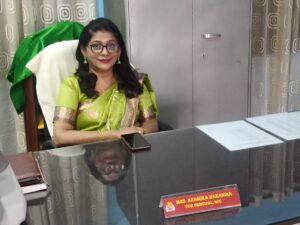
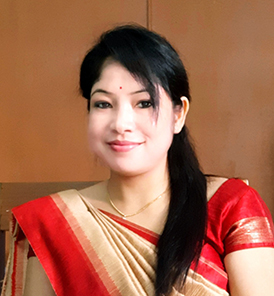
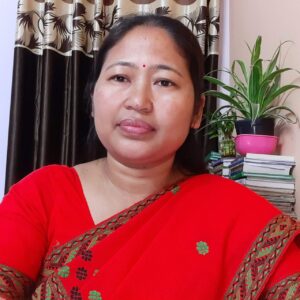
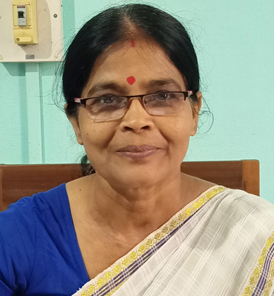
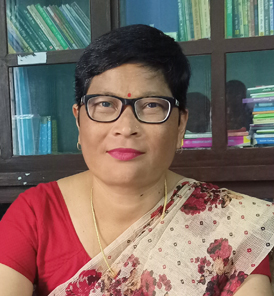
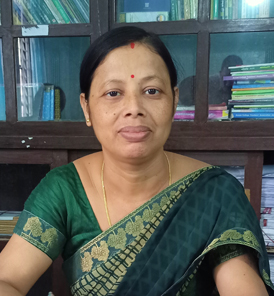

Follow Us!